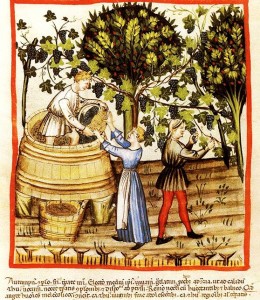My salad days, when I was green in judgement
This common, if well-worn, phrase first appeared in Shakespeare’s Antony and Cleopatra of 1606. At the end of Act One of the play, recalling a youthful affair with Julius Caesar, Cleopatra refers to a time of innocence, silliness or indiscretions. Since May is National Salad Month, let us celebrate the greens by looking at the work of another Englishman, John Evelyn (1620-1706). His Acetaria: a discourse of sallets, printed in London in 1699, was the first book devoted to salads.





